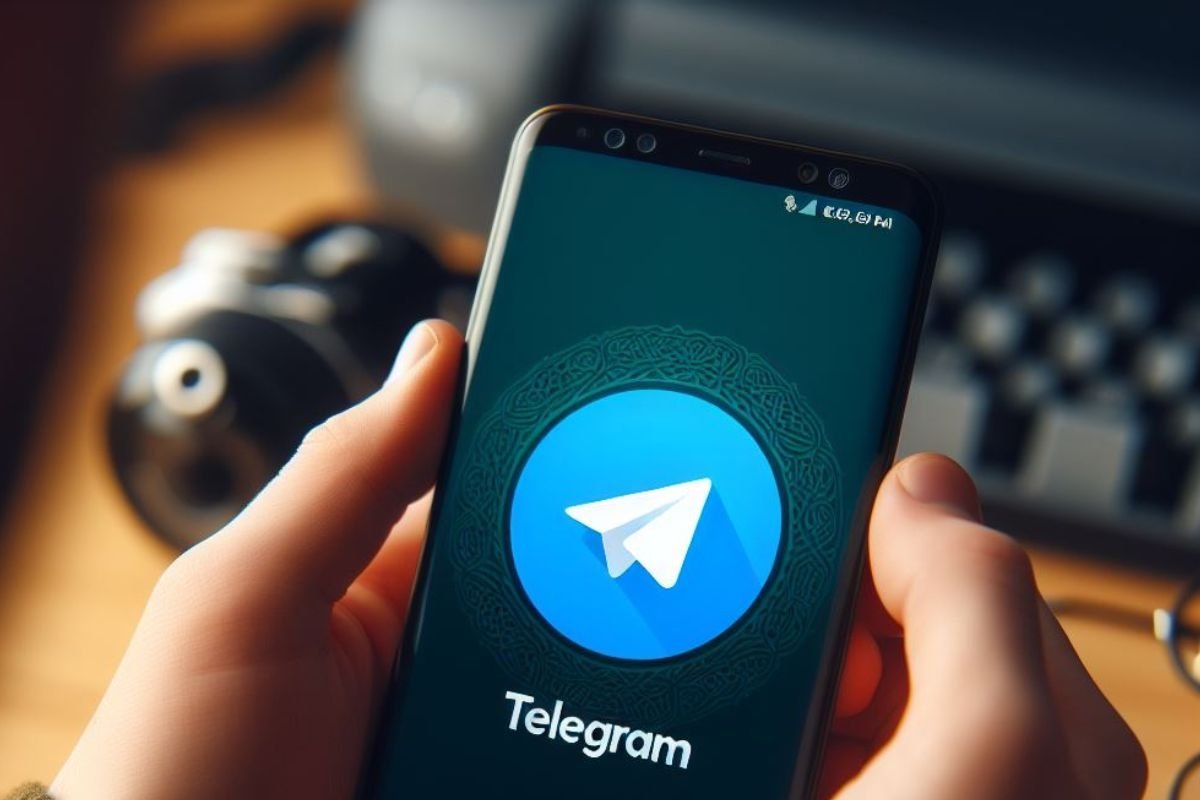Exploring digital spaces and how people connect online is a big part of our modern lives, isn't it? Just like we learn about using different software tools, editing pictures, or even how microphones work, as you might find in some of the information I have, like "My text" which covers things from project management software to how to manage files on a computer, we also see new ways people get together and share things on the internet.
This article looks into a particular phrase, "Telegram wasmo somali xamar," which has been popping up in conversations about online activity in the Somali community, especially around the city of Mogadishu, sometimes called Xamar. It's about understanding what this term means in the broader picture of how people use apps like Telegram, and what that means for online safety.
We'll talk about the sorts of discussions and content that can appear in these online places, and the good as well as the not-so-good sides of it. It's important, you know, to get a clearer idea of the digital world and how it touches people's lives, particularly in communities where online tools are becoming more and more common, offering both connection and a few challenges.
Table of Contents
- Understanding "Telegram Wasmo Somali Xamar": What Does It Mean?
- Online Communities and Their Impact in Somalia
- Keeping Safe in Digital Spaces: Tips for Everyone
- Community Efforts and Future Outlook
- Frequently Asked Questions
- Conclusion
Understanding "Telegram Wasmo Somali Xamar": What Does It Mean?
The phrase "Telegram wasmo somali xamar" brings together a few key ideas. It points to a certain kind of content or discussion happening on the Telegram app. This is something that has, you know, gained some attention in recent times, especially when people talk about online life in Somalia.
The Term Explained
"Wasmo" is a Somali word that, in many contexts, refers to explicit or adult content. When combined with "Telegram," it suggests that this kind of material is being shared or discussed on the messaging platform. It's a term that raises questions about what people are seeing and sharing online, and that, is a pretty big topic for a lot of folks.
This is, to be honest, a sensitive subject. It shows how the internet can bring up all sorts of things, some helpful and some, well, not so helpful. People often look for specific things, and sometimes those things are not what you would want younger people or even most adults to come across, so it's worth knowing about.
Why Telegram?
Telegram is a very popular messaging app around the world, and that includes Somalia. It's known for its group chat features and the ability to share many types of files. You can have really big groups on Telegram, which makes it easy for lots of people to join discussions or share content quickly. This is, you know, one reason why it becomes a hub for many different kinds of interactions.
The app also offers some privacy features, like secret chats and channels, and that can make it appealing for certain kinds of sharing. People use it for everything from news updates to family chats, and sometimes, for more private or specific group interests. So, it's a tool that's quite versatile, really.
The "Xamar" Connection
"Xamar" is another name for Mogadishu, the capital city of Somalia. So, when you see "xamar" in this phrase, it suggests that these discussions or content sharing are particularly relevant to, or perhaps even originating from, the Somali community in Mogadishu. It gives the search term a very local feel, you might say.
This connection highlights how digital trends often have a local flavor, reflecting the specific interests or concerns of a community in a particular place. It's not just a global thing; it's also very much about what's happening on the ground, so to speak. People in Mogadishu, like people everywhere, are using these tools to connect, and that can lead to all sorts of outcomes, honestly.
Online Communities and Their Impact in Somalia
Online communities have really changed how people in Somalia connect with each other. They offer ways to stay in touch, share news, and even talk about daily life. These digital spaces, you know, have become very important for many, many people.
How Digital Spaces Shape Connections
For many Somalis, especially those living far from home or even within the country, online platforms like Telegram help keep family ties strong. They also let people join groups based on shared interests, like sports, news, or even local community events. It's a way to feel connected, even when you're not physically together, which is a pretty big deal for a lot of folks.
These platforms can be great for sharing information quickly, too. News spreads fast, and people can get updates on what's happening around them, sometimes even faster than traditional media. This can be really helpful, for example, during emergencies or for staying informed about local issues. It's like having a big town hall meeting, but online, you know.
People also use these spaces for business, for education, and for just chatting about daily things. It's a reflection of how our lives are, more and more, moving into the digital world. The way people interact online, it really shapes how they see the world and each other, too it's almost a new kind of gathering place.
Challenges and Concerns
While there are many good things about online communities, there are also some challenges, as you might expect. The ease of sharing information means that not everything shared is always true or helpful. Misinformation can spread quickly, and that can cause problems for people trying to figure out what's real, and that is a bit of a worry, sometimes.
Another concern is the kind of content that gets shared. As with the term "wasmo," some groups or channels might share content that is not suitable for everyone, especially younger people. This can be a big worry for parents and community leaders who want to keep their families safe online. It's a tricky balance, really, between open communication and protecting people from harm.
There are also worries about privacy. When you join groups or share things online, your personal information might be seen by more people than you expect. This can lead to issues like scams or unwanted attention. It's something people really need to be careful about, honestly, because once something is online, it can be hard to take it back.
The Role of Digital Literacy
Knowing how to use the internet safely and smartly, what we call digital literacy, is super important for everyone. This means understanding how apps work, knowing what information is safe to share, and being able to tell the difference between good and bad content. It's about being a smart user, you know, not just someone who clicks on everything.
For communities like those in Somalia, where internet use is growing fast, learning these skills is key. It helps people get the most out of online tools while also protecting themselves from the risks. It's about empowering people to make good choices online, and that, is very important for the future.
Education plays a big part here. Teaching young people and adults about online safety can help them avoid problems. It's like teaching them how to cross the street safely; it's a basic life skill for the digital age. People need to know how to spot dangers, how to report things that are wrong, and how to keep their own information private, so, it's a lot to learn, but it's worth it.
Keeping Safe in Digital Spaces: Tips for Everyone
Staying safe online is something we all need to think about, no matter where we are or what apps we use. It's about being aware and taking a few simple steps to protect yourself and others. These tips are, you know, pretty straightforward, but they make a big difference.
Protecting Personal Information
Your personal information includes things like your full name, your home address, your phone number, and even pictures of you and your family. It's really important not to share too much of this with people you don't know well online. Think of it like this: would you tell a stranger on the street all these details? Probably not, right? The same idea applies online, actually.
When you set up your accounts on apps like Telegram, take a moment to check your privacy settings. You can usually choose who sees your profile picture, your phone number, or when you were last online. Making these settings more private means fewer people can see your details, and that, is a good way to stay safe.
Also, be careful about clicking on links from people you don't know, or from messages that seem a little bit off. These links can sometimes try to trick you into giving away your personal details. It's always better to be a little bit suspicious than to risk your information falling into the wrong hands, you know.
Recognizing Risky Content
Sometimes, you might come across content online that makes you feel uncomfortable, or that seems inappropriate. This could be pictures, videos, or even just certain kinds of messages. It's important to recognize this kind of risky content so you can avoid it. If something feels wrong, it probably is, so just a little bit of caution helps.
For parents, talking to your children about what they see online is key. Help them understand what is okay to look at and what is not. Encourage them to tell you if they see anything that makes them feel bad or worried. Open communication can really help kids make good choices online, and that is very important.
Remember that not everything you see online is true or real. Some content might be designed to mislead or trick people. Developing a healthy sense of doubt about what you see, especially in big group chats, can help you avoid problems. It's about being a critical thinker, you might say, and that's a useful skill for anyone online, honestly.
Reporting Concerns
If you see content on Telegram or any other platform that is harmful, illegal, or makes you feel unsafe, you should report it. Most apps have a way to report users, messages, or groups that break their rules. When you report something, you're helping to make the online space safer for everyone, and that is a really good thing to do.
You can also talk to a trusted adult, a community leader, or even local authorities if you come across something very serious. Sometimes, simply leaving a group that shares bad content is the best step. It's about taking action, you know, to protect yourself and others from things that are not right.
For more general information on online safety, you can always look for resources from trusted organizations. For instance, you can learn more about digital safety measures on our site, and we also have information on how to handle online interactions safely. These resources can give you more specific advice on different situations, which is quite helpful.
Community Efforts and Future Outlook
Communities play a big part in making online spaces safer and more positive for everyone. When people work together, they can really make a difference. This is something that, you know, is happening more and more in places like Somalia.
Local Initiatives
In many Somali communities, people are starting their own efforts to teach about online safety. This might include workshops in schools or community centers, where people learn about the good and bad sides of the internet. These local efforts are really important because they speak directly to the needs of the people there, so, it's very practical.
Some groups are also creating their own safe online spaces, like moderated Telegram groups or Facebook pages, where people can share information and discuss things in a positive way. These groups often have clear rules about what can and cannot be shared, and that helps keep things civil and safe. It's about building a better online environment, basically.
Parents and elders are also stepping up to guide younger generations. They are learning about the internet themselves so they can better understand the challenges their children face online. This kind of shared learning is vital for building a community that supports safe digital habits, and that is, honestly, a very good sign for the future.
Encouraging Positive Online Habits
It's not just about avoiding bad things; it's also about promoting good habits online. This means encouraging people to



Detail Author:
- Name : Sincere Collier
- Username : johns.shanie
- Email : spinka.genevieve@weimann.info
- Birthdate : 1997-09-15
- Address : 420 Howell Glen Suite 293 East Bethelbury, SD 88782
- Phone : +1 (731) 672-7854
- Company : Murphy, Leuschke and Johnson
- Job : Market Research Analyst
- Bio : Tempore ea repellat enim est labore excepturi. Quo nisi modi perspiciatis voluptates nostrum ex dolore. Qui veritatis cumque voluptatem totam voluptate mollitia quia.
Socials
linkedin:
- url : https://linkedin.com/in/tvandervort
- username : tvandervort
- bio : Exercitationem quia sint ut et.
- followers : 113
- following : 1894
instagram:
- url : https://instagram.com/tvandervort
- username : tvandervort
- bio : Earum debitis nisi ut voluptas. Laudantium consequuntur corporis aperiam ducimus non voluptatem.
- followers : 4874
- following : 1891
tiktok:
- url : https://tiktok.com/@vandervortt
- username : vandervortt
- bio : Est aliquid ut et harum. Molestiae quasi possimus vel est ut.
- followers : 1822
- following : 125

